
« A renewed growth model and development paradigm for Africa »
Workshop by invitation, Paris
Africa is endowed with incredible natural and human resources, as well as great cultural, ecological, and economic diversity. Although the continent has enjoyed numerous economic advances in recent years, many Africans still expect greater economic opportunities than they are currently obtaining. Despite a rapidly rising population - which will represent a quarter of the global population by 2050 - the African continent grew at an average annual rate of 4.7% between 2000 and 2017. This level of growth has so far been insufficient to trigger fundamental structural changes, while failing to create enough decent jobs, with 282 million people currently working in unstable employment.
Regional and global markets offer several opportunities for new and stronger growth patterns. Deepening regional integration and regional value chains in Africa can provide sizable opportunities for diversifying exports. The new continental free trade area (CFTA) – initially signed by 44-member states of the African Union – offers an important stepping-stone for policy action. In a context where regional integration is building momentum, this workshop aims to present the state of African economies and discuss the how African countries can accelerate productivity growth and sustain broader global economic prosperity.
Discussions will explore African economies’ priorities and policy implications in the context of rising youth population, rapid urbanization, technological change and digitalization. It will convene several experts and high-level senior officials to participate in a constructive debate on how the continent may realize its potential by designing a sustainable development model for African economies, based on mutual learning. These discussions and exchanges will seek to contribute to policy dialogue on Africa and ongoing efforts to ensure ambition, cohesion and coherence between the continent’s development vision.
Agenda
| 9.00 – 9.15 |
Welcoming remarks - Karim El Aynaoui, President, Policy Center for the New South - Arthur Minsat, Head of Unit – Africa, Europe & Middle-East, OECD Development Center |
| 09:15 – 10.15 |
Session 1: “Key trends shaping Africa’s current and future development” Chair: Farida Moha, Former journalist at RFI - Presentation by Sébastien Markley, Statistician, OECD Development Center, of the report : « Development dynamics in Africa 2018: Growth, employment and inequality » - Presentation by Adam Belhadj : Assistant Professor at the University of Carthage in Tunisia and co-author of the chapter "Dynamics of growth, jobs and inequality in North Africa" Followed by an open discussion Key questions for discussions: - What are the major economic and social trends in Africa? - What are the dynamics of growth, jobs and inequalities across Africa’s five region? - What would be a sustainable development model for African economies? - How could African countries further integrate and in a better way into the global economy? |
| 10.15 – 10.30 |
Coffee Break |
| 10.30 – 11.30 |
Session 2: “Between economic growth and structural fragility” Chair: Farida Moha, Former journalist at RFI - Presentation by Mouhamadou Moustapha Ly, Economist, Policy Center for the New South of the report “Miroir d’Afrique” Key questions for discussions: - What are the dynamics of growth for resource-rich African country? - Which policies can harness the continent’s natural resources for a sustainable growth model? - What would be an enabling environment for the private sector to play its role and continue to attract Foreign Direct Investment that transfers knowledge and creates linkages with the local economy? - How can African markets become competitive to accelerate economic growth and create more formal sector jobs? - What would be the right set of industrial policies? |
| 11.30 – 12.30 |
Policy panel: Opportunities and challenges of economic integration in Africa Chair: Farida Moha, Former journalist at RFI - H.E. Mr. Fathallah Oualalou, Former Minister of the Economy and Finance - Senior Fellow, Policy Center for the New South |
| 12.30 – 13.30 |
Session 3: Discussion about prospects to deepen regional integration in Africa and unlock productive transformation Chair: Bouchra Rahmouni, Director of Research, Research valorization, Partnerships and Events, Policy Center for the New South Regional and global markets offer several opportunities for new and stronger growth patterns. Deepening regional integration and regional value chains in Africa can provide sizable opportunities for diversifying exports. Currently, intermediate goods account for less than 15% of Africa’s trade. While demand for goods is rising, the technology to produce them is also increasingly accessible. The new continental free trade area (CFTA) – initially signed by 44-member states of the African Union – offers a significant stepping-stone for policy action. - Presentation by Arthur Minsat, Head of Africa Unit, OECD Development Centre of the preliminary work “Africa's Development Dynamics 2019: Public policies for Productive Transformation” that will be launched at the African Union summit in summer 2019. Followed by an open discussion Key questions for discussions: - How can regional integration strengthen regional value chains and accelerate productive transformation in Africa? - Given its location between Europe and sub-Saharan Africa, what role could Morocco play to strengthen the continent’s industrialization path, including integration into regional and global value chains? - What is needed to create an enabling environment that improves access to regional and global markets and strengthen regional production networks and complementarities? |
| 13.30 – 14.30 |
Cocktail Lunch |
-
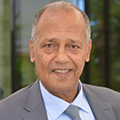
Abdelhak Bassou, Senior Fellow, Policy Center for the New South
Abdelhak Bassou is a Senior Fellow at the Policy Center for the New South, previously known as OCP Policy Center, who focuses on Security Studies and Strategies and Defense. He occupied several offices within the Directorate General of the Moroccan National Security where he was Borders’ Division Chief from 1978 to 1993. He was the former Director of the Royal Institute of Police in 1998. He also served as the Chief of Regional Security (Errachidia: 1999-2003, Sidi Kacem: 2003-2005) and was also Head of the Central General Intelligence from 2006 to 2009. He also contributed to the output of several international organizations endeavors including the Council of Arab Interior Ministers from 1986 to 1992, where he represented the Directorate General of National Security in several meetings.
Abdelhak Bassou holds a Master’s Degree in Political Science and International Studies from the Faculty of Law, Economics and Social Sciences of Agdal in Rabat. His master thesis is entitled « L’Organisation Etat Islamique, naissance et futurs possible. »
-
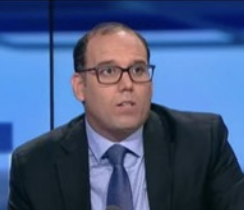
Aram Belhadj, Maître assistant à l’université de Carthage en Tunisie
Dr. Aram Belhadj is an assistant professor in the university of Carthage (FSEG Nabeul), Tunisia. He got his PhD from the university of Orleans France. He is an author of many articles and notes that were published in international peer reviewed journals. He is working on economic and monetary integration issues on developing and emerging economies. Additionally, he has served as consultant for several think-tanks and international organizations.
-
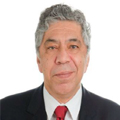
Otaviano Canuto, Senior Fellow, Policy Center for the New South
Otaviano Canuto is Senior Fellow at the Policy Center for the New South, principal at Center for Macroeconomics and Development and non-resident fellow at Brookings Institute. He is also Former Vice President and Executive Director at the World Bank, Executive Director at the International Monetary Fund (IMF) and Vice President at the Inter-American Development Bank.
Mr. Canuto was also Deputy Minister for international affairs at Brazil’s Ministry of Finance, as well as professor of economics at University of São Paulo (USP) and University of Campinas (UNICAMP).
-
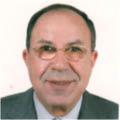
Mhammed Dryef, Senior Fellow, Policy Center for the New South
Mhammed Dryef has held several responsibility positions including: Chief of Cabinet at the Ministry of the Interior, Governor Director of the greater Casablanca Urban Agency, Director General of National Security, Director General of Urban Plaining and Territorial Planning, Wali- Director General of interior affairs, and Wali of Fez, Casablanca, and Laayoune.
Besides, Mhammed Dryef has published a book on urbanization in Morocco as well as various studies on decentralization, regionalization, deconcentration, and evaluation of public policies. He holds a PHD in Public Law from the University of Grenoble, a diploma from the National School of Public Administration and a post graduate diploma in private law.
-

Karim El Aynaoui, President, Policy Center for the New South
Karim El Aynaoui is the President of the Policy Center for the South, previously known as OCP Policy Center, He also serves as Dean of the Faculty of Economics and Social Sciences of the Mohammed VI Polytechnic University and advisor to the CEO and Chairman of OCP Group, a global leader in the phosphate sector. From 2005 to 2012, he worked at Bank Al-Maghrib, the Central Bank of Morocco. He was the Director of Economics and International Relations, where he provided strategic leadership in defining and supporting monetary policy analysis and strategy. He was also in charge of the Statistical and International Relations Divisions of the Central Bank, led the research division and was a member of the Governor’s Cabinet. Before joining Bank Al-Maghrib, Karim El Aynaoui worked for eight years at the World Bank, both in its Middle Eastern and North Africa, and Africa regions as an economist. He has published papers, books and articles in scientific journals on macroeconomic issues in developing countries. Recently, he co-authored a book outlining a growth strategy for Morocco and was the guest editor of a special issue on food price volatility in Oxford Economic Papers.
Karim El Aynaoui is a board member of the OCP Foundation, a member of the Strategic Advisory Board of the French Institute of International Relations (IFRI) and a member of the COP22 Scientific Committee. He also participates in the Malabo-Montpellier Panel. He holds a PhD in economics from the University of Bordeaux, where he taught for three years courses in statistics and economics.
-
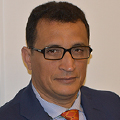
Rachid El Houdaigui, Senior Fellow, Policy Center for the New South
Rachid El Houdaigui is professor of International Relations at Abdelmalek Essaadi University, Tangier's Law Faculty, and Senior Fellow at the Policy Center for the New South, previously known as OCP Policy Center, where he focuses on International relations, geopolitics, Mediterranean region, North Africa, and the Arab world. He is also professor at the Royal College of Advanced Military Studies (Kenitra) and professor invited at Cergy-Pontoise University (Paris), Cadix University (Spain) and at La Sagesse University (Beirut, Lebanon).
Mr. EL Houdaïgui is the author of numerous books and articles dealing with International relations and geopolitics: the Mediterranean, North Africa and the Arab world. Also, he is co-director of the Moroccan-Spanish review “Peace and International Security” and in charge of the Observatory of Mediterranean Studies (Abdelmalek Essaadi University).
-

Mohammed Loulichki, Senior Fellow, Policy Center for the New South
Mohammed Loulichki has an extensive experience of 40 years in diplomacy and legal affairs. He assumed inter alia the functions of Head of the Department of Legal Affairs and Treaties in the Ministry of Foreign Affairs. He was also Ambassador of Morocco in Hungary, Bosnia – Herzegovina and Croatia (1995-1999), Ambassador Coordinator of the Government of Morocco with MINURSO (1999 – 2001), Ambassador of Morocco to the United Nations in Geneva (2006-2008) and New York (2001-2003 and 2008-2014), as well as President of the Security Council (December 2014).
-

Mouhamadou M. Ly, Senior economist, Policy Center for the New South
Mouhamadou M. Ly is Senior economist at Policy Center for the New South. Previously, he was senior lecturer in economics at Gaston Berger University (Saint-Louis, Senegal) and visiting lecturer at the City university London. He holds a PhD in development economics from Cerdi-Auvergne University (Clermont-Ferrand, France). His area of interest concerns development economics, fiscal and monetary policies. Additionally, Mr. Ly has served as consultant for several international organizations and for the Senegalese government.
-
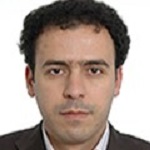
Jamal Machrouh, Senior Fellow, Policy Center for the New South
Dr. Jamal Machrouh is a Professor of international relations at the National School of Busi ness and Management (ENCG) in the University of Kenitra in Morocco, and Senior Fellow at the Policy Center for the New South. Dr. Machrouh is also a lecturer at the Royal College of Higher Military Studies (CREMS) in Kenitra and at the Södertörn University in Stockholm, Sweden. He has written a book entitled “Justice and Development according to the World Trade Organization” as well as several articles on international relations and geopolitics.
-
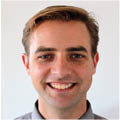
Sébastien Markley, Statistician, Africa, Europe and Middle-East Unit, OECD Development Centre
Sébastien Markley has been a statistician at the OECD Development Centre since 2014, specialising in collecting and analysing statistics on African countries. He was on the team responsible for the annual flagship publications Africa’s Development Dynamics, Revenue Statistics in Africa and the Af rican Economic Outlook. In Whitehorse, Canada, he produced official demographic and socioeconomic statistics for the Canadian government. In Toulouse, France, at the Institut BVA, he developed statistical models of consumer choice based on survey data. He holds a doctorate from the Toulouse 1 University Capitole.
-
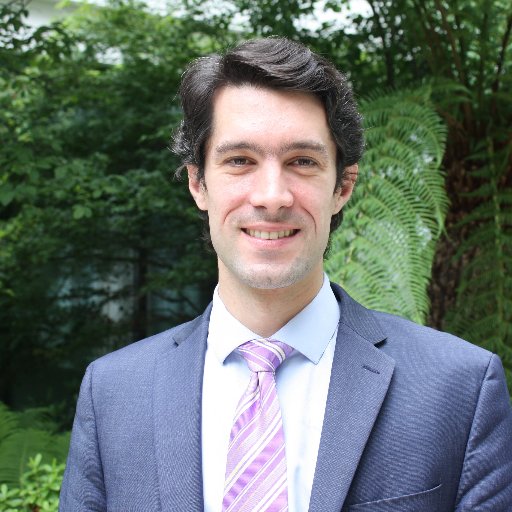
Arthur Minsat, Head of Africa, Europe and Middle-East Unit, OECD Development Centre
Arthur Minstat is Head of the OECD Development Centre’s Unit for Africa, Europe and Middle East, Arthur is responsible for the Africa's Development Dynamics 2018 and Revenue Statistics in Africa, in partnership with the African Union. As economist, he led the themes of the African Economic Outlooks (AEO). At UNDP in New York, Arthur contributed to the flagship Human Development Reports. In Abidjan, he volunteered for the United Nations Operations in Côte d’Ivoire (ONUCI) during the electoral crisis. He gained private sector experience at Wolters Kluwer. Arthur Minstat holds a PhD from the London School of Economics and Political Science.
-
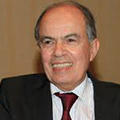
Fathallah Oualalou, Senior Fellow, Policy Center for the New South
Fathallah Oualalou is an economist, a Former Minister of Economy and Finance, of Privatization and Tourism, a Former Mayor, City of Rabat, as well as a Senior Fellow at the Policy Center for the New South, previously known as OCP Policy Center, who focuses on Macroeconomics, economic growth and development and economic policies. He graduated in economy from Mohammed V University in 1964 and obtained a diploma on economy in 1966 in Paris.
Fathallah Oualalou was appointed Ministry of Economy in 1998 and Ministry of Finance in 2002. He is professor at Mohammed V University and chairs the Association of Moroccan Economists and Union of Arab Economists. After over 20 years as member of the Municipal Council, he was Mayor of Rabat from 2009 to 2015.
-

Bouchra Rahmouni, Director of Research, Research valorization, Partnerships and Events, Policy Center for the New South
Bouchra Rahmouni is an international affiliated Professor at New York University (Risk of Finance Engineering department) – USA, she is also visiting professor at Holy Spirit University – Lebanon and Hassan I University - Morocco. In addition, Bouchra Rahmouni is a distinguished Professor of Geopolitics at Grenoble School of Management – France, and adjunct professor at International trade and Law Institute of Pusan National University in South Korea. At the policy Center for the South, Bouchra Rahmouni is Director of Research, Research valorization, Partnerships and Events.
Professor Rahmouni wrote and contributed She has contributed to several books, including: Femme et entrepreneur: C’est possible! (2012); Géopolitique de la Méditerranée (2013); Géopolitique de la condition féminine (2013); Le basculement économique et géopolitique du monde, le poids et la diversité des pays émergents (2013). She is also editor of Le Maroc stratégique: Ruptures et permanence d’un Royaume en mouvement (2013) and Afrique: Nouvelle frontière de la croissance, Comprendre, Investir et Entreprendre (2015)
-

El Mostafa Rezrazi, Senior Fellow, Policy Center for the New South
El Mostafa Rezrazi is a professor of Crisis Management, and Security Studies and a Senior Fellow at the Policy Center for the New South, previously known as OCP Policy Center, who focuses on Terrorism, Security and East Asia studies. His area of Expertise covers Afro-Asian Affairs, Strategic & Security Studies, Terrorism, Extremism and Deradicalization, mainly from the view of Criminal; Legal and Forensic Psychology. He received his Ph.D. in Regional & International Affairs from the University of Tokyo in 1998, and later a Doctorate from the University of Mohammed V on the Psychological dynamisms of Suicide Bombers (2014).
He is the executive director of the Moroccan Observatory on Extremism and Violence, Director of the African Center for Asian Studies, Rabat. Currently, he is Visiting Professor at the University Mohammed V Rabat. In 2017, he was appointed a Co-coordinator of the OBOR China-Morocco Research Group, and a member of the Advisory Board of The Euro-African Studies Institute, Hanyang University Seoul, South Korea.
-

Alfredo Valladao, Professor, Sciences Po Paris and Senior Fellow, Policy Center for the New South
Alfredo Valladao is Professor at Paris School of International Affairs (PSIA), Sciences Po Paris, President of the Advisory Board of EUBrasil association (Brussels). He is also a Senior Research Fellow, formerly OCP Policy Center, and Director of Latin America Research Chair at the Centre d’Etudes Sociales, Economiques et Managériales (CESEM – HEM Rabat).
He is a Member of the Committee of Rencontres Internationales de Genève, a Member of the Advisory Council of Janus.net (journal of International Relations), Portugal. Journalist, columnist for Radio France Internationale (RFI – Brazilian Service), he has published extensively on geopolitics, global economics, regional integration and trade negotiations, Brazil and Latin America. He holds a PhD in Political Sciences from Sciences Po Paris.
-
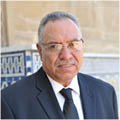
Abdelkader Zraih, Senior Fellow, Policy Center for the New South
Abdelkader Zraih is currently President of the Regional Human Rights Council, member of the International Study Centre for Enterprise and Human Rights in London, and Senior Fellow, Policy Center for the New South, previously known as OCP Policy Center. He is also a member of the Moroccan National Commission for the elaboration of the Charter of National Education and Vocational Training and of the Tripartite Commission for the drafting of the Moroccan Labor Code.
Mr. Zraih is a former Member of Parliament, President of the CDT Group, and former Vice-President of the France-Morocco Joint Committee of the said Chamber. He is also President of the Safi Foundation dedicated to the economic and social development of the eponymous city and was a member of the secretariat of the Euro-Med platform.









